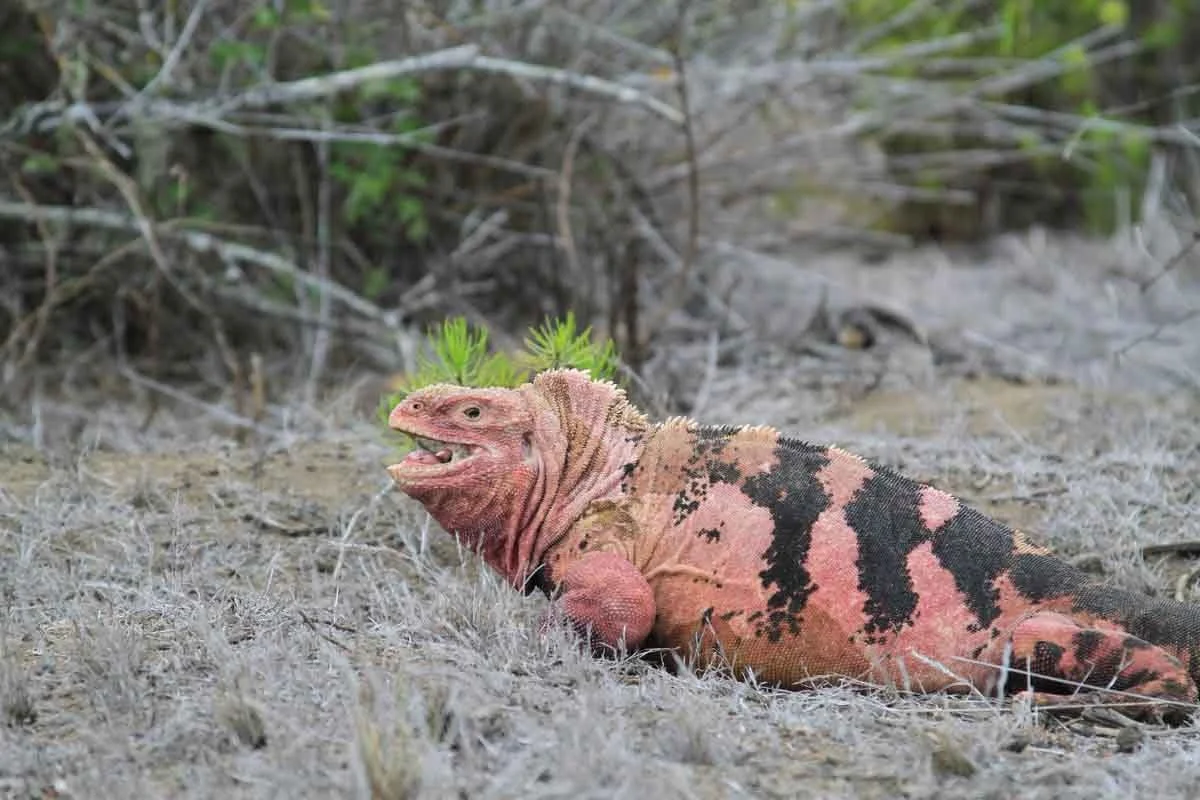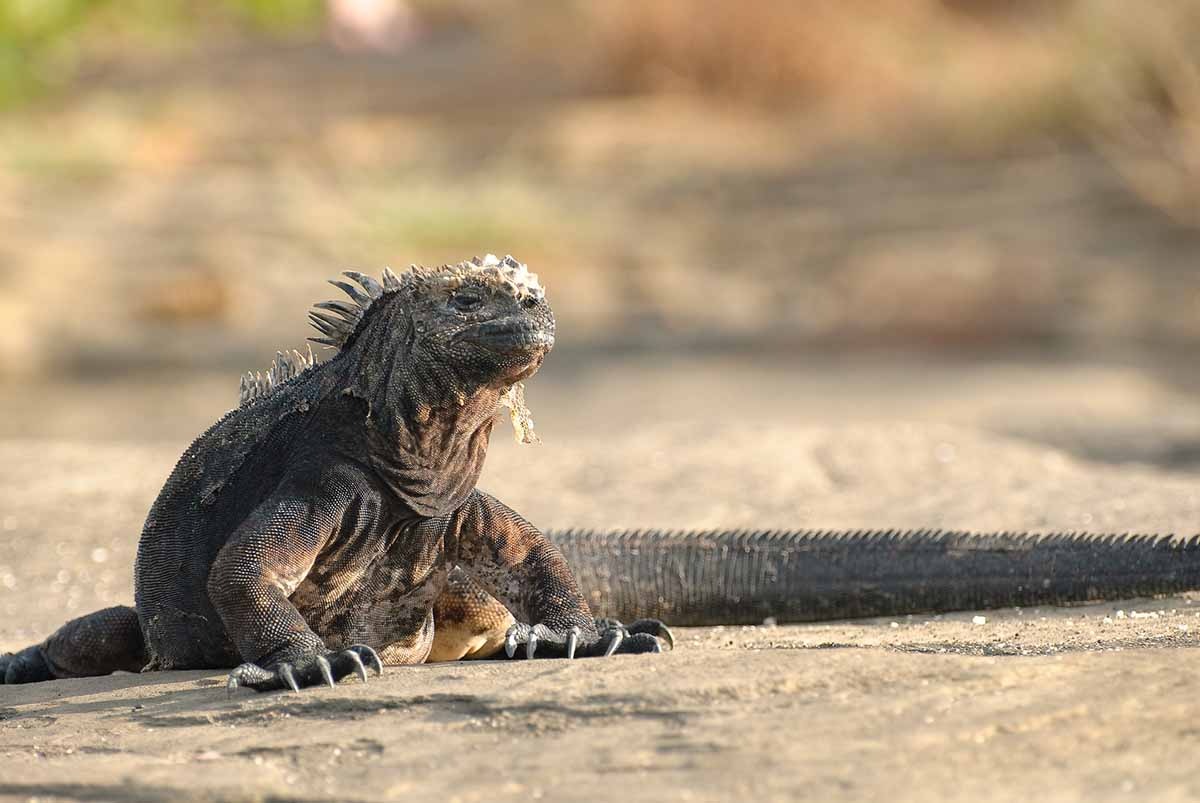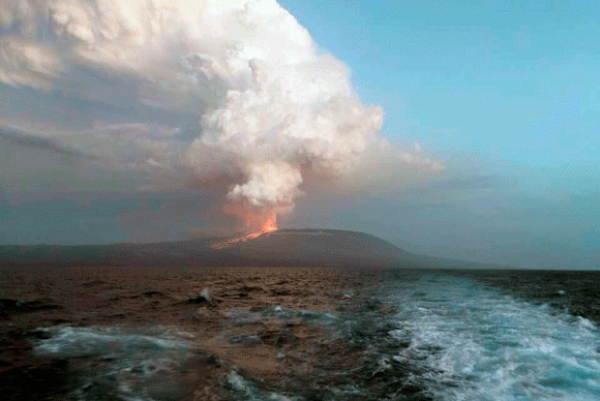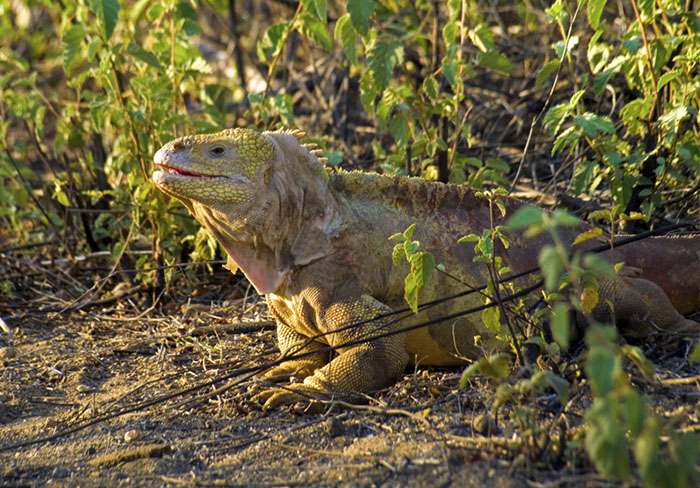
Galapagos Pink Land Iguana at the brink of extinction | Travel Blog
The Galapagos pink iguana, which was only recently identified as a distinct species from the Galapagos land Iguana, is on the verge of extinction. The iguana rosada, for it's name in Spanis is distinct from the more common land iguana and completely diffrent from the marine iguanas also present in the archipelago.

Local authorities reported that only 211 pink iguanas are left after scientists were sent to the Galapagos Islands by experts to count a critically endangered species of lizard.
This expedition involved around 30 scientists and Galapagos rangers. It was held on Wolf Volcano in the north Isabela Island, the largest island in the archipelago.
Galapagos National Park (PNG), in a statement, stated that 53 iguanas had been found and captured during the census. 94 percent of them live above 1,500m (4,900 feet above sea level).
This allowed experts to "estimate the population of 211 pink Iguanas."
The pink iguanas (iguana rosada) were discovered for the first time in 1986. They were then identified as a distinct species from the Galapagos land Iguana in 2009.
They are restricted to a 25-kilometer area (9.5 miles) on Wolf Volcano. The PNG has installed cameras to monitor their behavior and identify threats.
Washington Tapia, an Ecuadoran expert, told AFP that as many as 350 pink iguanas could exist prior to the census.
Tapia, Tapia's director at the American Galapagos Conservancy NGO, said that so far "no juveniles" have been found.
Tapia stated that "being restricted to a single site makes the species vulnerable" in quotes released Friday by PNG.
"Urgent action must be taken to ensure their preservation."
Their population was estimated at 300-350 before the survey. However, it was reduced to 200 due to their proximity to Wolf Volcano on Isabela.

A 10-day expedition revealed that pink land Iguanas are in danger of extinction. There have been no juveniles since 2014. Scientists were concerned that predators like rodents or feral cats could be preying upon the eggs and young hatchlings, which raised alarming concerns.
The survey involved the installation of a series of camera traps at the summit of Wolf Volcano to gain a better understanding of Pink Land Iguana behavior and threats. This allows them to capture footage from days of expedition. The clip also included a clip of an animal that could have predated the iguana’s eggs or hatchlings.
An urgent conservation priority
GNPD Director Danny Rueda, Galapagos Conservancy Director for Conservation Washington Tapia stated that the saving of the Pink Land Iguana is an urgent conservation priority due to the fact that they lack juveniles in the wild, and that their range is limited to less than 10.9km.
Inside the Galapagos National Park
They are available in the following locations: The Conolophus marthae, is found only 25km2 in the surroundings of Wolf volcano's slopes inaccessible to tourists, located in the north-central part of Isabela Island.
When should you see them? All year. This area is only accessible by scientific expeditions.
There are many threats: Invasive rats and feral cats are common in the pink iguana's range, which makes it more likely that young and eggs will be preyed upon. Due to its small population, the main threats are volcanic eruptions and periodic droughts. The species is also at risk from competition with the Galapagos Land Iguana, which co-occurs.

Conservation actions: As little information is available about the species, vital research is underway. The community still cannot determine average size, average weight or average lifespan. It is uncertain whether the species will survive long-term, so it is important to consider a captive breeding program.
Galapagos Islands are famous for their unique creatures. Many creatures have evolved separately from other species. Many of these can be observed either by taking an Island hopping hotel based tour or by boarding a liveaboard cruise around the islands.
Check Our Suggested Tours:
- Galapagos Western Islands 8 day cruise Itinerary on board Ocean Spray
- Galápagos Islands Aboard of Endeavour II
- Wild Galápagos Escape
- Itinerary 6 Days Cruise Western & Central Islands
- Galapagos liveaboard diving cruise exploring the Gálapagos marine reserve
- 4-Day Galapagos Cruise: Discover Wildlife and Breathtaking Locations
Check Our Galapagos Cruises:

